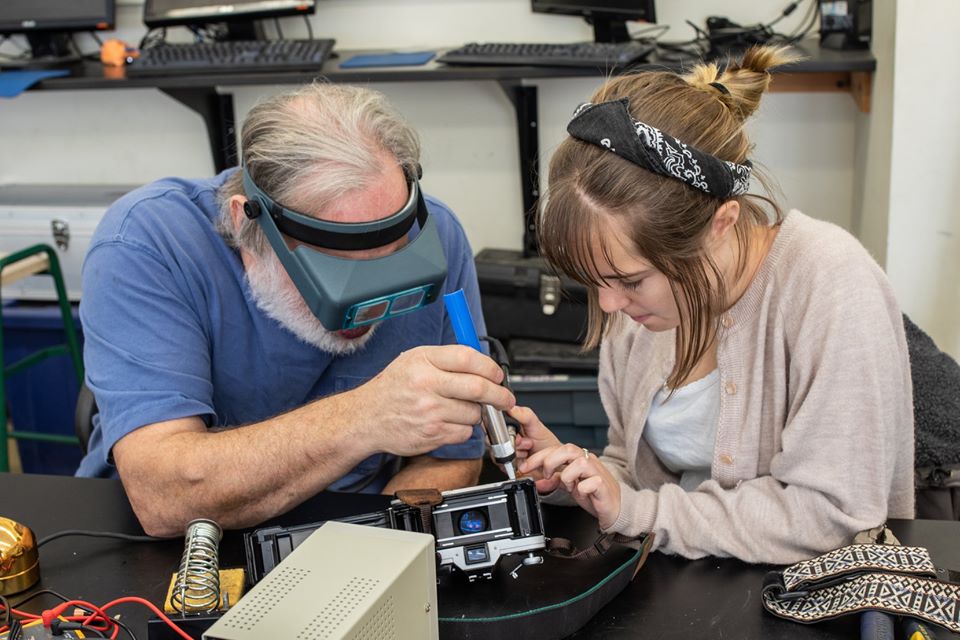December 16, 2019
“If I ran a school, I’d give the average grade to the ones who gave me all the right answers, for being good parrots. I’d give the top grades to those who made a lot of mistakes and told me about them, and then told me what they learned from them.”—Buckminster Fuller
Dear Parents,
We have just wrapped up the fall Project Weeks with the display and presentation of an enormous variety of work. I can reliably report that curiosity is not dead! (See some photos here.) I clear my whole calendar on the days of project presentations, because it’s the best demonstration of the efficacy of progressive education that we have. The final stage—and perhaps most important piece—of each project is the self-evaluation, in which students need to look at their process and consider what and how they have learned. Those who can do this self-reflection as they go along, allowing for adjustment and course corrections, are already well ahead of most teenagers. Those who can’t see the whole before the end are still able to reflect on what they might have done, had they understood earlier what might be difficult. Sometimes students new to the school don’t really get what it’s possible to accomplish during Project Weeks until they see what others have done.
Our Fundamental Beliefs include the phrase “to treasure the hard stretching of oneself.” Of course, the process of figuring out who you are and what you are capable of is a big part of adolescence. Some students need a little pushing to stretch themselves; others regularly test their own limits. Finding ways of testing and experimenting that are useful and not life-threatening is not always a clear path for teenagers, but this generation is less prone to risk-taking than earlier ones, for sure. Our Fundamental Beliefs also ask them to “be willing to take risks, if need be, for moral growth.” Both of these exhortations stem from a hope that our students will graduate with grit and gumption, as well as goodness of heart. Given the prevalence of anxiety in this generation, adults here talk a lot about how we can help our students be more tolerant of their own discomfort, less likely to be derailed by the usual challenges of life, and more confident in their abilities to overcome trials and tribulations.
I hope that all of you have a wonderful holiday, wherever you are. Thank you to those of you who are hosting one or more international students for the winter break; they are deeply grateful and I know you will enjoy getting to know them. We look forward to having everyone back for 2020, which can’t help sounding like a propitious year.
Cheers,
Emily


